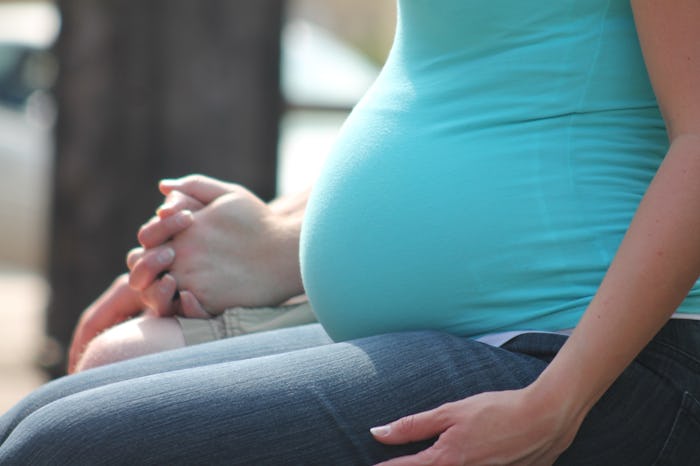Life
New Study Reveals Suicide Is A Leading Cause Of Death Among Pregnant Women & New Moms
The belief and expectation that pregnancy and newborn phases are a happy time for all women could actually harm millions of expecting women and new mothers who suffer from depression. In fact, as many as one in seven women will experience symptoms of the mental illness during pregnancy and in the first months after giving birth, data from the Centers for Disease Control and Prevention reveal. And now, new research suggests that seeking help could be even more crucial after researchers found that suicide is a leading cause of death among pregnant women and new moms.
A study published this week in the Canadian Medical Association Journal found that suicide rivaled bleeding and high blood pressure as a leading cause of maternal death for women during pregnancy and the first year after giving birth.
To get to this unsettling finding, a team of Canadian researchers surveyed Ontario women for over 15 years — between 1994 and 2008 — to gather data on their mental health during and after pregnancy. The team found that around 5 percent of the study participants (51 of nearly 1,000 women) had committed suicide during pregnancy or in the year after birth. During pregnancy, some 4 percent of 453 deaths were due to suicide, a proportion that mirrored statistics for women in the region who were not pregnant, according to the report.
Postpartum depression could be a significant factor in the results, lead author Sophie Grigoriadis told U.S. News & World Report in an interview. She added that while actual rates of maternal depression vary, several other studies have found that it affects as many as 20 percent of mothers.
But, the number of pregnant women and new mothers potentially vulnerable to postpartum mental illness can go even higher, Grigoriadis told U.S. News & World Report, as more evidence supports the idea that the recovery period for women actually extends well beyond the first few weeks after giving birth. She explained:
Typically, the postpartum period has been limited to the first 30 days or up to six weeks after birth. Our study found on average women were in the seventh month after birth when they died by suicide. This means that we must continue to be vigilant in assessing women well into the first postpartum year.
The findings also suggested that postpartum and infant health professionals may play a crucial role in assessing new mothers for mental illness — perhaps an even greater role than traditional mental health professionals in many cases. Fewer than half of the women who died by suicide during pregnancy or after giving birth had been seen by a mental health professional in the last four weeks before dying, according to the study. But, those women had been seen by an obstetrician or kept an appointment with a pediatrician.
Grigoriadis told the news outlet that the study was meant to shed light on the prevalence of postpartum suicide because so little research had been done before now. Building on prior evidence that pregnant women experience more assault-related trauma than those who aren’t pregnant, Grigoriadis said in the same interview that she and her colleagues “hoped to better understand suicide in these women in order to develop better screening and prevention strategies.”
For many women, pregnancy and the first year after giving birth can be a difficult time. The intense physical and hormonal changes certainly take a toll on one's mind and body. And when it comes to mental health, uncertainty over whether to seek help for anxiety and depression — and which treatments are safe during pregnancy and nursing — can leave new mothers with more questions than answers.
But reaching out is the best way for new moms to protect themselves during this period of intense vulnerability, researchers advised. "The message is not to underestimate the seriousness of mood and anxiety disorders," Grigoriadis told U.S. News & World Report. "You are not alone. This is more common than is usually acknowledged, and help is out there."
For more information about postpartum depression, or help connecting to local resources, call Postpartum Support International at 1-800-944-4773(4PPD). Or visit the organization's resources online.
